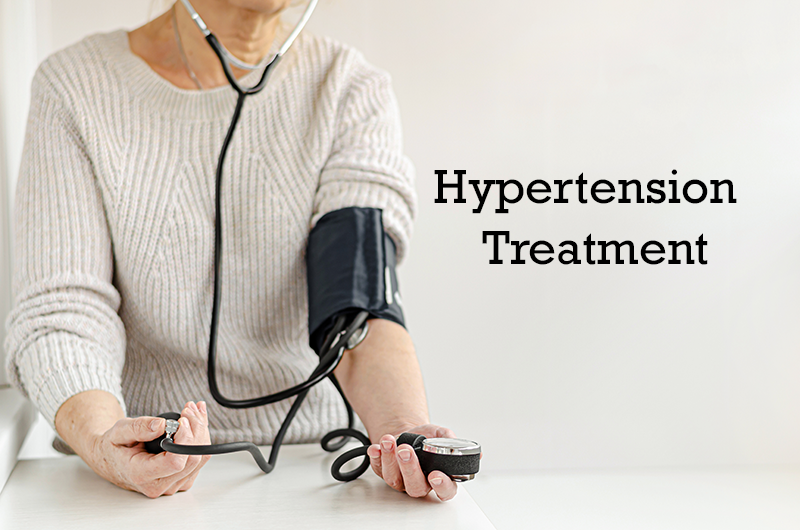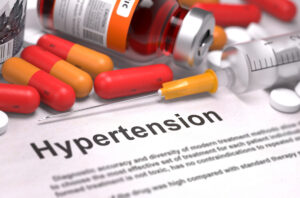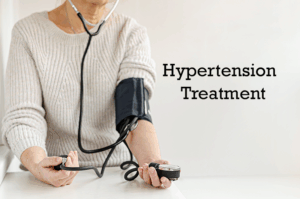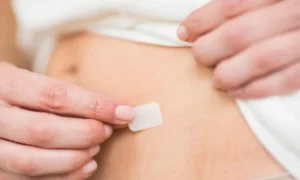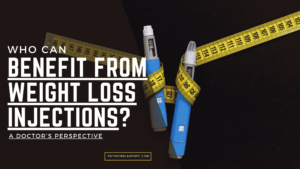Understanding Hypertension
What Is Hypertension?
Hypertension, or high blood pressure, is when the force of your blood against the artery walls is consistently too high. Think of it like water flowing through a narrow hose—it puts pressure on the hose and wears it down over time. If left unmanaged, hypertension can lead to heart disease, stroke, kidney failure, and more.
Why Blood Pressure Matters
Your blood pressure affects every organ in your body. Healthy blood pressure is generally considered to be below 120/80 mmHg. When it rises, your heart works harder to pump blood, which can eventually damage your arteries.
Common Causes and Risk Factors
-
Poor diet
-
Lack of physical activity
-
Smoking
-
Excess alcohol
-
Obesity
-
Chronic stress
-
Genetics
-
Age
The Role of Lifestyle in Managing Hypertension
Medication vs. Lifestyle Adjustments
While medication is essential for many people, lifestyle changes are often the first line of defense—and they can even reduce or eliminate the need for meds in some cases. Better yet, lifestyle changes improve your overall health too.
How Lifestyle Changes Lower Blood Pressure Naturally
Eating right, moving your body, cutting harmful habits, and managing stress—these all reduce the strain on your arteries, helping your heart pump more efficiently and keeping your pressure in check.
Diet and Nutrition
The DASH Diet (Dietary Approaches to Stop Hypertension)
The DASH diet is specifically designed to fight high blood pressure. It emphasizes:
-
Fruits
-
Vegetables
-
Whole grains
-
Low-fat dairy
-
Lean proteins
This diet is low in sodium, saturated fat, and sugar but rich in nutrients like potassium, calcium, and magnesium.
Reduce Sodium Intake
Salt is a sneaky culprit. Aim for less than 1,500 mg of sodium per day if you have hypertension. Avoid:
-
Processed meats
-
Canned soups
-
Fast food
-
Packaged snacks
Increase Potassium-Rich Foods
Potassium helps balance sodium levels. Try:
-
Bananas
-
Sweet potatoes
-
Spinach
-
Avocados
-
Beans
Limit Processed and Sugary Foods
Highly processed foods are often loaded with salt, sugar, and unhealthy fats—all of which raise blood pressure. Stick to whole foods whenever possible.
Importance of Hydration
Staying hydrated supports healthy circulation. Aim for 8 glasses of water a day, more if you’re active.
Physical Activity
Benefits of Exercise for Blood Pressure
Exercise strengthens your heart, allowing it to pump blood with less effort. Less effort means less pressure on your arteries.
Best Types of Exercise for Hypertension
-
Brisk walking
-
Swimming
-
Cycling
-
Yoga
-
Strength training
Even 30 minutes a day can make a difference.
How Often Should You Exercise?
Shoot for 150 minutes per week of moderate activity. Break it up however it fits into your schedule—just get moving.
Weight Management
The Link Between Weight and Blood Pressure
Extra weight means extra strain on your heart. Losing even 5–10 pounds can significantly lower your blood pressure.
Healthy Weight Loss Strategies
-
Eat smaller portions
-
Avoid sugary drinks
-
Keep a food diary
-
Get support from professionals (like our team at Raymond Lau Family Medicine PC)
Limiting Alcohol and Caffeine
How Alcohol Affects Blood Pressure
Drinking too much can raise your blood pressure. The recommendation is:
-
1 drink per day for women
-
2 for men
Less is better.
The Role of Caffeine – Myths and Truths
Caffeine affects people differently. It may spike blood pressure short-term, especially in those not used to it. Monitor how your body responds.
Quit Smoking
How Smoking Harms Your Heart and Vessels
Every puff damages blood vessels, increases pressure, and reduces oxygen to your heart. Quitting improves your blood pressure almost immediately.
Tips to Quit for Good
-
Use nicotine replacement
-
Avoid triggers
-
Join a support group
-
Talk to your doctor
Managing Stress
Stress and Blood Pressure – What’s the Connection?
Chronic stress keeps your body in fight-or-flight mode. Your heart races, blood vessels tighten, and blood pressure rises.
Stress-Relief Techniques That Work
-
Deep breathing
-
Meditation
-
Journaling
-
Therapy
-
Walking in nature
Find what soothes you—and do it regularly.
Improving Sleep Habits
The Link Between Sleep and Hypertension
Poor sleep raises your risk for high blood pressure. Aim for 7–9 hours each night.
Tips for Better Sleep Hygiene
-
Stick to a schedule
-
Avoid screens before bed
-
Keep your bedroom cool and quiet
-
Avoid caffeine late in the day
Monitor Your Blood Pressure at Home
Why Self-Monitoring Is Key
Tracking your readings helps catch spikes early. Bring your log to appointments—it helps your doctor adjust treatment if needed.
Choosing the Right Home Monitor
Look for one that’s:
-
Validated by health organizations
-
Easy to use
-
Upper-arm (not wrist) models are preferred
The Importance of Regular Check-Ups
Staying on Top of Your Health
Even if you’re feeling fine, high blood pressure often has no symptoms. Regular visits ensure you’re staying on track.
How Raymond Lau Family Medicine PC Can Help
Located in New York City, we offer:
-
Comprehensive blood pressure screenings
-
Personalized care plans
-
Ongoing support
-
Expert guidance on nutrition, fitness, and medication
Visit raymondlaufmpc.com or call 646-885-1399 to schedule an appointment.
Small Habits, Big Impact
Consistency Is the Secret Ingredient
One salad won’t change much, but daily choices add up. Make better decisions one day at a time.
Building a Long-Term Healthy Lifestyle
Don’t think of it as a diet. Think of it as a new way to live—and thrive. Start small, stick with it, and celebrate your wins.
When to See a Doctor
Recognizing Warning Signs
See your doctor if you experience:
-
Headaches
-
Chest pain
-
Blurred vision
-
Shortness of breath
-
Dizziness
These may signal dangerously high blood pressure.
Getting Professional Guidance in NYC
At Raymond Lau Family Medicine PC, we’re here to help. You don’t have to tackle hypertension alone—reach out for expert care.
Conclusion
Hypertension is a serious condition, but it’s also manageable, naturally. With small but consistent lifestyle changes, you can control your blood pressure and improve your overall health. Whether you’re looking for support with diet, fitness, stress, or medication, Raymond Lau Family Medicine PC in New York City is here for you.
Call us today at 646-885-1399 or visit raymondlaufmpc.com to start your wellness journey.
FAQs
Can lifestyle changes really replace blood pressure medication?
In some cases, yes—especially in early stages. But always consult your doctor before stopping any meds.
How long does it take to see results from lifestyle changes?
Some people notice improvements in just a few weeks. Consistency is key!
What’s the best diet for lowering blood pressure?
The DASH diet is widely recommended and backed by science for managing hypertension.
Is walking enough exercise to reduce blood pressure?
Absolutely! Walking 30 minutes a day, five times a week, can significantly lower your readings.
Does stress affect blood pressure?
Yes. Chronic stress raises your heart rate and constricts blood vessels, increasing pressure over time.

